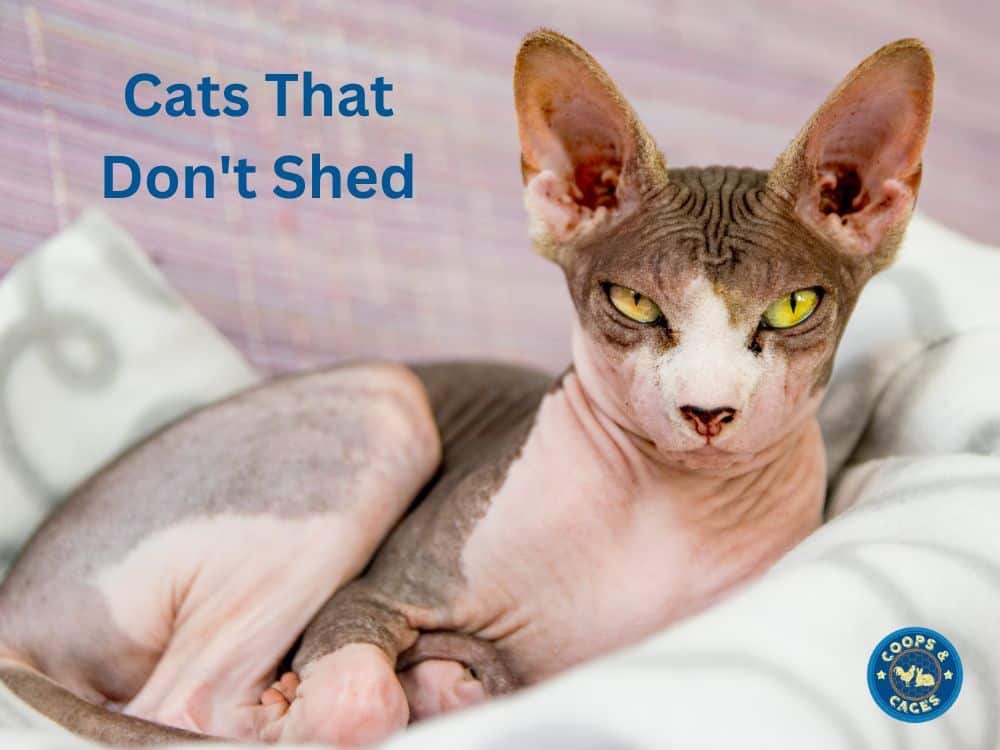Cats, FAQ's, How To Do Things
Cats That Don’t Shed: A Guide for Allergy Sufferers
Today we embark on a journey to explore the fascinating world of low-shedding cats.
For those seeking feline companionship without the constant battle against cat hair, this guide dives into the science behind minimal shedding, addresses allergies, and unveils the top cat breeds renowned for their tidiness.
From grooming essentials to dietary considerations, we’ll equip you with the knowledge to make an informed choice for a harmonious life with your furry friend.
Let’s uncover the secrets of cats that don’t shed!
What Are Low-Shed Cats?
Low-shedding cat breeds are either hairless or have fur that rarely sheds. This makes them the preferred choice for people with cat allergies or those who dislike their home being covered in fur.
The Science Behind Low-Shedding Cats
Cats that shed minimally owe it largely to a genetic mutation. Hairless cat breeds like the Sphynx have a gene mutation affecting their hair growth cycle.
This results in either no hair or a very fine peach-like fuzz that sheds significantly less than other breeds. However, the amount of fur a cat loses isn’t solely dictated by their DNA; it’s also influenced by their well-being and what they eat.
A well-nourished cat with a balanced diet rich in omega-3 fatty acids will likely have healthier skin and fur, reducing shedding levels.
Allergies and Non-Shedding Cats
Hypoallergenic cat breeds can help minimise allergic reactions in humans as there is less cat fur in the air. However, no cat is truly 100% hypoallergenic. Even a “hairless” breed with peach fuzz sheds minimally.
Most allergy sufferers are actually triggered by a cat’s saliva and skin dander, which all cats produce. In my experience, regular grooming is essential to manage allergies effectively.
Bathing your cat every few weeks can help reduce the amount of allergen-related proteins on their coat and skin. Moreover, investing in an air purifier with HEPA filters can capture airborne allergens before they settle around your living spaces.
I have found that keeping pets out of bedrooms can further minimise exposure.
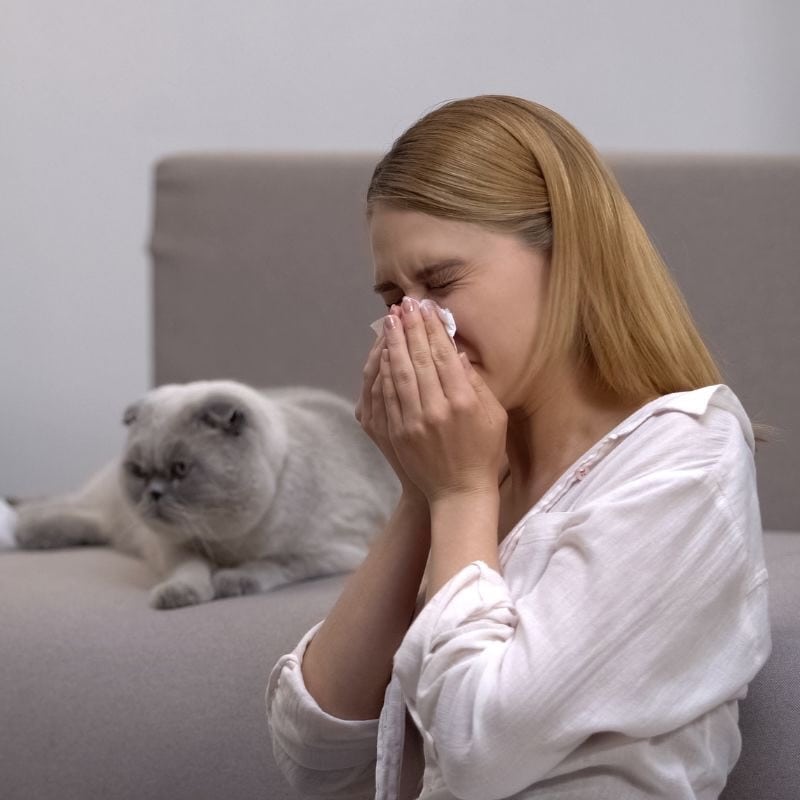
Top Cat Breeds That Don’t Shed
If you’re on the hunt for a feline friend but dread the thought of fur-covered furniture, fear not.
Several cat breeds are known for their minimal shedding, making them perfect companions for those with allergies or a preference for tidier homes.
- American shorthairs
- Asian leopard cats
- Bengal cats
- Bombay cats
- Cornish Rex breed
- Devon Rex cats
- Donskoy cats
- Oriental shorthairs
- Peterbald cats
- Sphynx cats
- Siamese cats
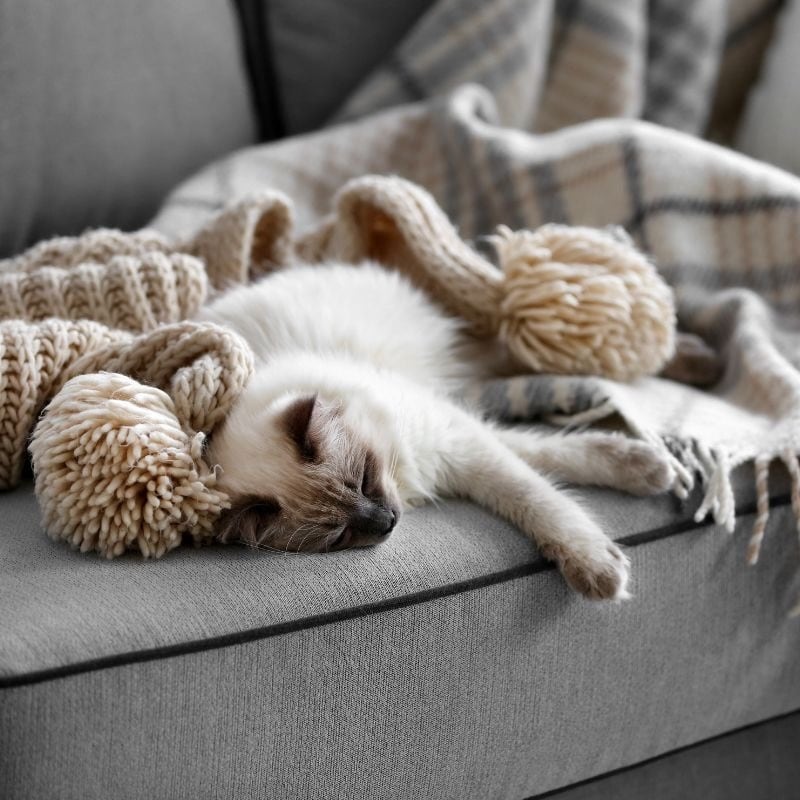
Caring for Your Low-Shedding Cat
Opting for a cat that doesn’t shed much is ideal for those with allergies, yet it’s crucial to maintain their grooming routine to ensure they remain in good health.
Grooming Essentials
While non-shedding cat breeds don’t leave your home covered in fur, they still require grooming.
Those with a low-shedding coat need regular brushing to prevent matting while hairless cat breeds need their skin cleaned regularly to remove the build-up of oils.
If you’re an allergy sufferer living with a cat that does shed (such as Russian Blues), regular brushing and bathing can remove allergens from your cat and minimise your reactions.
Dietary Considerations
A balanced diet plays a pivotal role in maintaining your non-shedding cat’s coat plus minimising health issues.
High-quality foods rich in omega-3 fatty acids can promote a glossy coat while supporting skin health from within. Always ensure fresh water is available too as hydration is key for preventing dry skin.
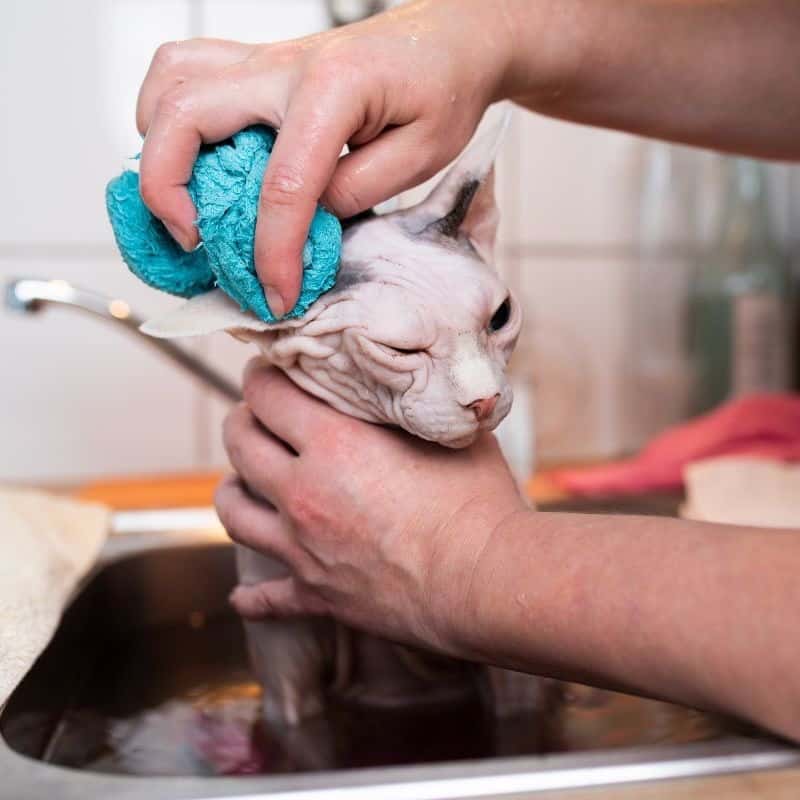
FAQs in Relation to: Cat That Don’t Shed
What Breed Of Cat Does Not Shed?
Sphynx cats, known for a fine peach fuzz coat that lacks guard hairs, hardly drop any hair around the house.
Are There Any 100% Hypoallergenic Cats?
No cat is 100% hypoallergenic, but hairless breeds or breeds with short fur produce fewer allergens.
Do All Cats Shed Alot?
No, breeds such as the Devon Rex have less fur to lose, making them a low-shedding breed.
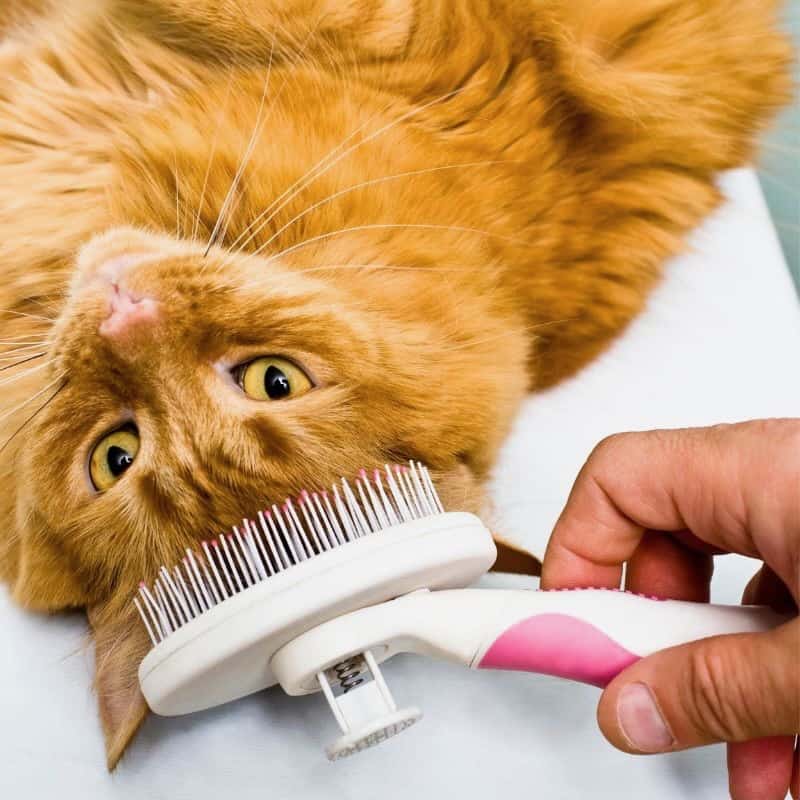
Jordan’s Wrap
We’ve explored the world of low-shedding cats and discovered that these feline companions are a great choice for those with allergies or a desire for a neater home.
From understanding the genetic factors behind minimal shedding to managing cat allergies effectively, we’ve delved into the science and practicalities.
Our list of top cat breeds that don’t shed offers options for every preference. Remember, while these cats may shed less, regular grooming and a balanced diet are essential for their well-being.
Choose your low-shedding friend wisely, and enjoy a harmonious life with your feline companion!
Looking for an outdoor cat enclosure to minimise allergens inside your house? View Coops and Cages’ range of quality cat enclosures here.



